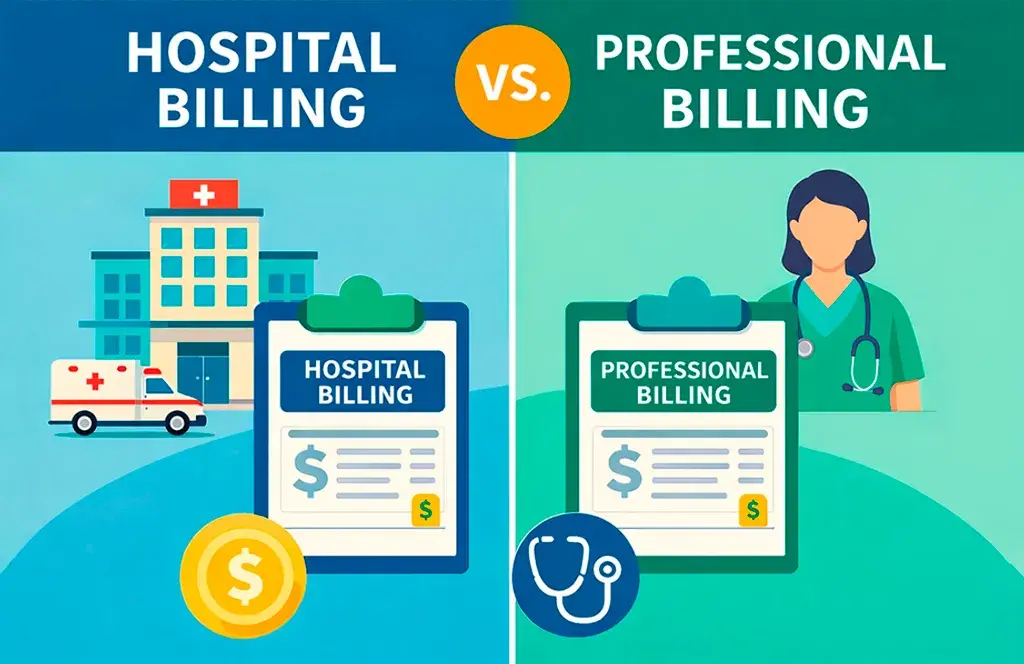Table of Contents
ToggleMedical Billing Tips That Actually Improve Cash Flow
1. Automate Claim Submission and Tracking
Relying on manual data entry increases the chances of costly mistakes and slows down your entire billing process. With automated claim submission, your billing system can flag missing fields, apply correct codes, and submit claims instantly. Real-time tracking helps identify issues before they turn into rejections. It also shortens the reimbursement cycle and improves cash flow. By reducing hands-on work, your staff can focus on more strategic tasks, while your practice benefits from faster, cleaner payments.
2. Verify Patient Insurance Before Every Visit
Insurance verification should never be skipped. Verifying each patient’s coverage, co-pay, and authorization status before the visit prevents claim denials and billing disputes. This step not only secures payment but also improves the patient experience by eliminating financial surprises. As part of smart medical billing tips, this habit reduces delays, saves rework hours, and enhances transparency for both provider and patient from the start of the visit.
3. Use Accurate Codes and Specialty-Specific Modifiers
Accurate coding is the backbone of effective billing. Use up-to-date ICD-10, CPT, and HCPCS codes to reflect the exact services performed. Specialty practices – like cardiology, pediatrics, or orthopedics – often require precise modifiers and bundling knowledge. Errors or outdated codes can lead to rejections or reduced payments. Regular coding audits and staff training help ensure that your claims meet payer requirements. When codes align with documentation, you maximize reimbursement and reduce delays caused by preventable denials.
4. Track and Appeal Denied Claims Immediately
Don’t let denials sit untouched. A robust denial management workflow ensures that every denied claim is reviewed, corrected, and resubmitted quickly. Document the reason for each denial and track resubmission success to identify patterns over time. These medical billing tips not only recover lost revenue but also prevent future mistakes by improving internal processes. Speed matters – faster appeals mean better cash flow and fewer write-offs.
5. Monitor A/R Days and Set Performance Benchmarks
A/R (Accounts Receivable) metrics reveal how well your practice is collecting revenue. Monitor your A/R aging reports weekly and aim to keep the majority of claims under 30 days. High numbers in 60- or 90-day buckets signal inefficiencies. Set realistic collection goals for your team and review progress in monthly check-ins. Tracking A/R not only helps recover overdue payments but also gives insight into coding, claim submission, and follow-up issues that may be slowing you down.
6. Train Your Team on Payer-Specific Billing Rules
Every insurance payer has its own quirks – different requirements for modifiers, pre-authorizations, and documentation. Training your billing team on these variations reduces the risk of denials and resubmissions. Build a knowledge base or reference sheet by payer, and make sure staff stay updated as policies change. Even experienced coders can miss small but important rules. Consistent payer-specific training ensures cleaner claims, faster payments, and less back-and-forth with insurers, saving both time and money in the long run.
7. Know When to Outsource Your Billing
Sometimes the most efficient solution is medical billing outsourcing. If your team is stretched thin or overwhelmed by complex payer rules, a professional billing partner can take over and improve results. These services bring specialized knowledge, denial prevention strategies, and compliance tools that boost your bottom line. Of all the medical billing tips, knowing when to delegate is key for growth-stage practices that want to optimize their revenue without expanding internal staff.
4 common medical billing mistakes to avoid
1. Submitting Claims With Incorrect Patient Info
Typos in name, date of birth, or insurance ID can trigger automatic rejections. Double-check entries during registration and implement data validation tools. Ensuring accurate patient info can save hours of rework and prevent unnecessary denials – one of the easiest ways to avoid costly billing issues.
2. Missing Timely Filing Deadlines
Every payer has a different claim submission deadline. Track them carefully to avoid lost revenue. Use calendar reminders or software to stay compliant. Consistently meeting these deadlines is one of the most fundamental medical billing tips to secure payments and avoid write-offs.
3. Using Outdated or Incorrect Codes
Using an obsolete code or wrong modifier can result in denials or underpayments. Schedule regular audits and update coding resources quarterly. Among essential medical billing tips, keeping codebooks and cheat sheets current protects your revenue.
4. Failing to Follow Up on Unpaid Claims
Don’t assume silence means approval. Always check claim status and rework any stalled or rejected submissions. Monitor outstanding balances weekly. Keeping codebooks and cheat sheets up to date protects your revenue and reduces coding-related denials.
Wrap-up: Small Changes, Big Revenue Gains
Improving your medical billing process doesn’t require a total overhaul. By applying these medical billing tips, your practice can streamline revenue collection, reduce administrative headaches, and focus more on patient care. From accurate coding to A/R monitoring, every improvement adds up to a healthier bottom line.
Need expert help optimizing your billing process? Talk to our team and learn how we can support your revenue cycle with tailored medical billing services.




